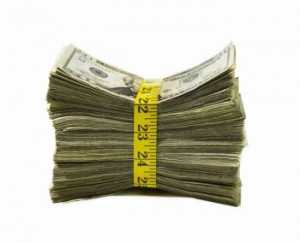While the obesity epidemic in the U.S. has been well-documented, it hasn’t quite been put this way before: nearly 10 percent of all medical costs in the United States are attributed to obesity.
That’s astounding. The price tag amounts to $147 billion a year in direct medical costs – that’s just over nine percent of all medical spending here in the U.S.
“Obesity, and with it diabetes, are the only major health problems that are getting worse in this country, and they are getting worse rapidly,” says Dr. Thomas R. Frieden, director of the U.S. Centers for Disease Control and Prevention.
One in three adults are obese in the United States. Let’s put that in a language everyone speaks: money.
A new report, published in the online edition of Health Affairs lays out the financial burden. Here it is in individual terms:
“A normal-weight individual will spend about $3,400 per year in medical expenditures and that number rises to about $4,870 if that individual is obese,” says study author Eric Finkelstein, director, RTI Public Health Economics Program in Research Triangle Park, N.C.
The biggest expenditure for the obese is prescription drugs. A normal weight person will on average spend about $700 a year in prescription medications. However, someone who is obese will spend about $1,300 on average.
So what does it take to reverse the trend? It comes down to the argument of individuals taking responsibility for their diet vs. the idea that the problem is more in the food supply in our society.
“Reversing obesity is not going to be done successfully with individual effort,” says Dr. Frieden. “We did not get to this situation over the past three decades because of any change in our genetics or any change in our food preferences. We got to this stage of the epidemic because of a change in our environment and only a change in our environment again will allow us to get back to a healthier place,” he said.
Via Yahoo
